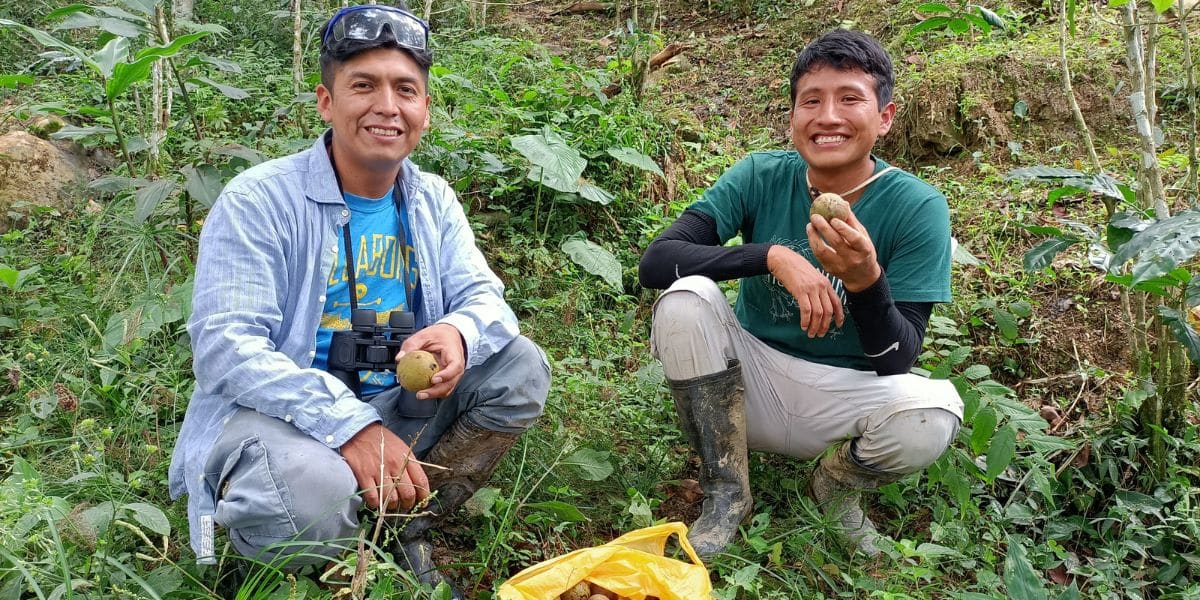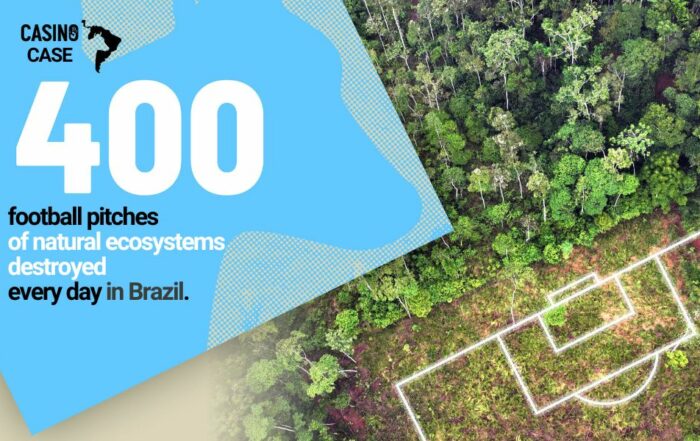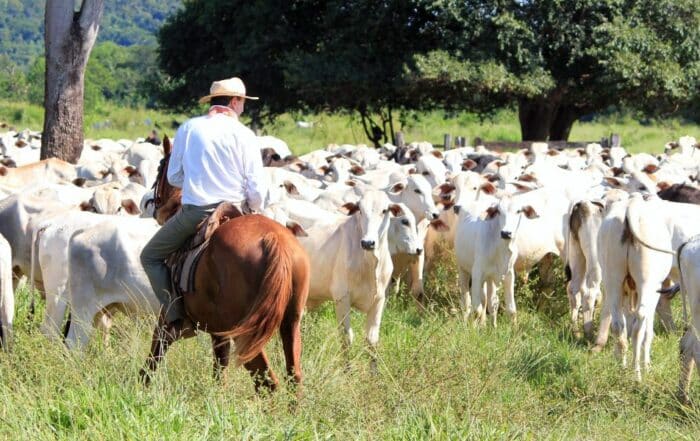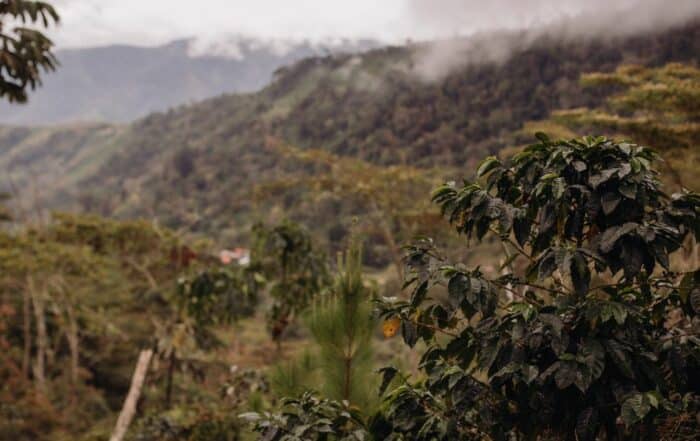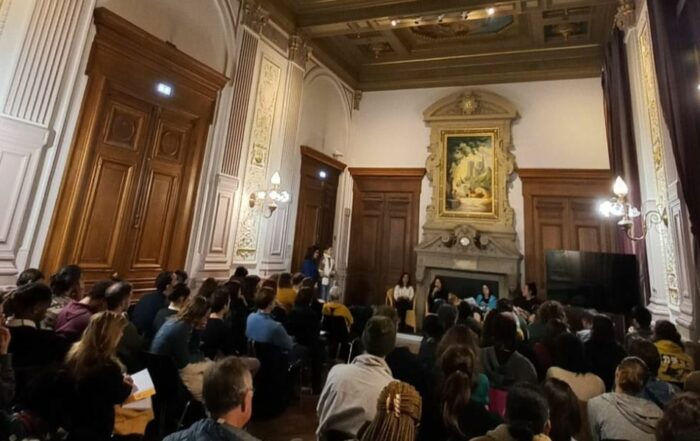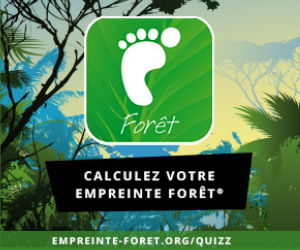Harvesting the first fruits of the Black Walnut tree (Juglans neotropica) in Villa Sol,
with Eduardo, son of a farmer and student at the UNALM © Envol Vert
2025 is off to a great start in terms of economic alternatives to deforestation in Pichanaki, Peru! The fruits of the Black Walnut tree (Juglans neotropica) are ripening, and the five groups involved in the project are preparing for the harvest.
This starts with the organization of each group through the election of three managers. One manager is in charge of planning the group and individual harvests, another is responsible for the smooth processing of the fruit (pulping, washing and drying), while the last is in charge of monitoring the storage and sale of the nuts. Following these elections, each group, led by its managers, drew up a work plan to divide up the harvesting activities.
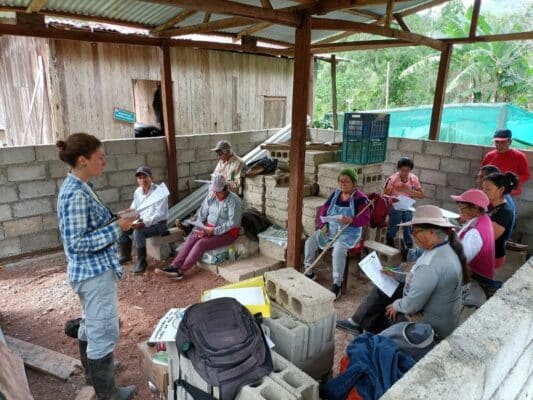
Organizing the harvest with the Yapaz group © Envol Vert
Noémie, a volunteer in charge of the economic alternatives in Pichanaki, took advantage of this momentum to propose a fun quiz on the Black Walnut tree and the nuts’ nutritional properties. Thanks to this activity, she hoped to freshen up the farmers’ knowledge of the nut, so that they would feel more comfortable talking about it when selling their product!
Following a number of farmers into their plots, the Envol Vert team was able to observe their Black Walnut trees and to monitor fruit ripening. This process is not homogeneous across the five groups participating in the project, as it is influenced by climate and altitude. These visits not only enable us to learn more about the Black Walnut tree, but also to maintain the involvement of the farmers, who are delighted to give tours of their plots.
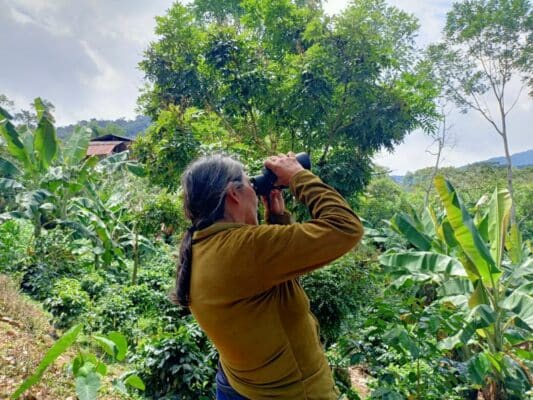
Monitoring fruits ripening in Pampa Azangaro Huerto © Envol Vert
To conclude the month of January, the Santa Rosa group, with the support of the Envol Vert team from Pichanaki, took part in a local fair celebrating the anniversary of the Río Tambo district. A group of women made cakes with the black walnuts and revisited the famous “papas a la huancaina” recipe by including these nuts. They organized themselves to sell their products at the fair and present the black walnut to passers-by, advocating for this species conservation which has been so exploited for its wood. The participation in the fair, which was designed to boost sales, also demonstrates the local communities’ seizing of the project!
Harvesting the first fruits of the Black Walnut tree (Juglans neotropica) in Villa Sol,
with Eduardo, son of a farmer and student at the UNALM © Envol Vert
2025 is off to a great start in terms of economic alternatives to deforestation in Pichanaki, Peru! The fruits of the Black Walnut tree (Juglans neotropica) are ripening, and the five groups involved in the project are preparing for the harvest.
This starts with the organization of each group through the election of three managers. One manager is in charge of planning the group and individual harvests, another is responsible for the smooth processing of the fruit (pulping, washing and drying), while the last is in charge of monitoring the storage and sale of the nuts. Following these elections, each group, led by its managers, drew up a work plan to divide up the harvesting activities.

Organizing the harvest with the Yapaz group © Envol Vert
Noémie, a volunteer in charge of the economic alternatives in Pichanaki, took advantage of this momentum to propose a fun quiz on the Black Walnut tree and the nuts’ nutritional properties. Thanks to this activity, she hoped to freshen up the farmers’ knowledge of the nut, so that they would feel more comfortable talking about it when selling their product!
Following a number of farmers into their plots, the Envol Vert team was able to observe their Black Walnut trees and to monitor fruit ripening. This process is not homogeneous across the five groups participating in the project, as it is influenced by climate and altitude. These visits not only enable us to learn more about the Black Walnut tree, but also to maintain the involvement of the farmers, who are delighted to give tours of their plots.

Monitoring fruits ripening in Pampa Azangaro Huerto © Envol Vert
To conclude the month of January, the Santa Rosa group, with the support of the Envol Vert team from Pichanaki, took part in a local fair celebrating the anniversary of the Río Tambo district. A group of women made cakes with the black walnuts and revisited the famous “papas a la huancaina” recipe by including these nuts. They organized themselves to sell their products at the fair and present the black walnut to passers-by, advocating for this species conservation which has been so exploited for its wood. The participation in the fair, which was designed to boost sales, also demonstrates the local communities’ seizing of the project!

